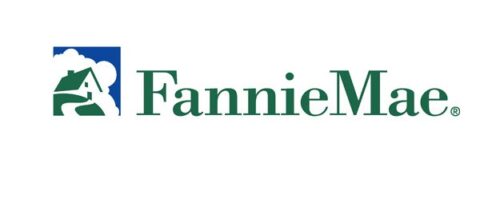What Happens to My Second Mortgage if My Original Mortgage Lender Forecloses?
Many homeowners believe that If your original mortgage lender forecloses on your property and your home is sold at a sheriff’s sale, your second mortgage is satisfied. This is not the case. The mortgages, judgments, and liens that were placed against the property after the first mortgage will be extinguished by the foreclosure, but that is only to create a clear title to the property for the new owner. You still owe those debts.
When your property is sold at a sheriff’s sale, if there is enough to satisfy the first mortgage, the remaining funds are available to pay other liens according to priority. Lien priority is usually determined by which one was recorded first. So, if an investor buys the home at sheriff’s sale, the funds will first go to the foreclosing lender. If it is enough to pay that loan in full, the Second Mortgage holder has the right to apply to the Court to obtain these Surplus Funds.
Can my Second Mortgage Lender Foreclose on my Property?
Your second mortgage lender has as much right to foreclose on the property if you fall behind on payments as your original mortgage lender does. However, a second mortgage lender must pay off the first mortgage if they foreclose, so they will normally only proceed with foreclosure if your property is worth more than you owe on your first mortgage.
The more equity you have in your home, the more secure your second mortgage is, and the more likely your second mortgage lender is to pursue foreclosure. If your second mortgage holder thinks that they can get paid in full at a sheriff’s sale, they may be very aggressive in their collection efforts.
If your home is “underwater,” meaning you owe more than it is worth, your second lender is unlikely to pursue foreclosure because they will not get enough back from the sale to satisfy the debt. However, in those cases, they may file a lawsuit to collect on the Note instead of foreclosing.
As a reminder, here is the general foreclosure timeline in New Jersey:
- Missed Payments: Typically, after missing several mortgage payments, the lender sends a notice indicating the default.
- Notice of Intent: If the default continues, the lender will send a Notice of Intent to Foreclose, usually after 60 days of missed payments.
- Filing of Complaint: If the homeowner doesn’t cure the default, the lender will file a foreclosure complaint with the court. Once served, the homeowner has 35 days to respond.
- Judgment and Sale: If there’s no response or the court rules in favor of the lender, a foreclosure judgment will be entered, and a sheriff’s sale will be scheduled.
Options for Dealing with an Underwater Mortgage
Being “underwater” is particularly challenging for those with second mortgages because it diminishes the likelihood that the second lender can recover the full loan amount through foreclosure. Thankfully, homeowners have several options to when dealing with an underwater mortgage including, but not limited to:
- Loan Modification: Some lenders may agree to modify the terms of the mortgage, making payments more manageable for the homeowner. This could involve reducing the interest rate, extending the loan term, or even forgiving a portion of the loan principal.
- Refinancing: Although more challenging with an underwater mortgage, refinancing the first mortgage (and potentially the second) into a new loan with better terms could provide financial relief. Programs like the Home Affordable Refinance Program (HARP) have historically offered solutions for underwater mortgages.
To discuss all of your options, get in touch with a knowledgeable foreclosure attorney. They will be able to explain your options and guide you in making the best possible decision.
Defenses to Foreclosure by Second Mortgage
Based upon increases in property values, old second mortgages that had disappeared are now coming back. They can be known as “Zombie Second Mortgages” because they had been thought to be long gone, and they suddenly appear and threaten to take everything. Hedge funds went around and bought a lot of these old mortgages for pennies on the dollar, and they are now collecting. NJ courts have not made decisions on these cases. My goal for my clients is to take the offensive and try to get the lender to want to work it out with you.
Many times, no mortgage statements had been sent for several years, and the homeowner may have believed that the second loan had been part of a modification of the first mortgage.
The mortgage is valid and can be foreclosed, even if it was part of a bankruptcy or no statements have been sent for more than ten (10) years. However, there may be a question about the amount due. For some loans, based upon federal law, the only reason a lender can stop sending monthly mortgage statements is because they “charged off” the debt. If the debt has been charged off, they are not permitted to charge interest and fees during the period of time that no statements are being sent.
It is possible to take an offensive approach and file a counterclaim against the lender for violating the NJ Consumer Fraud Act. They had been “lying in wait” and charging interest and fees without giving any notice, in addition to potentially violating federal law. That is an unconscionable business practice. If a homeowner had received notices, they would have had the opportunity to pay off the loan, or even file for bankruptcy to strip off this mortgage while the property was under water.
Additionally, it is possible to file Fair Debt Collection Practices Act (FDCPA) complaints against the mortgage servicer for trying to collect an amount that is not due.
In other words, homeowners facing foreclosure on a second mortgage have several potential legal defenses:
- Improper Notice: Foreclosure processes require lenders to follow strict notification procedures. If the lender fails to properly notify the homeowner of the foreclosure actions, this could be a valid defense.
- Questionable Loan Practices: If the second mortgage was obtained through predatory lending practices, such as unreasonable terms or lack of clear disclosure, the homeowner might challenge the foreclosure on these grounds.
- Errors in the Mortgage or Foreclosure Process: Mistakes in the loan documents or the foreclosure process itself can provide a basis for defense. This includes incorrect loan balances, misapplied payments, or procedural errors.
- Charging Off and Interest Fees: For loans that were supposedly “charged off” and, therefore, should not accrue interest and fees, proving this status can be a defense if the lender continues to charge interest or impose fees unlawfully.
It’s in your best interest to consult with a legal professional who understands foreclosure law, as they can help identify the most viable defenses based on the specifics of the homeowner’s situation and the lender’s actions.
What is a Second Mortgage?
A second mortgage is any other loan taken out by a homeowner on their home while still paying off a previous mortgage. When a homeowner takes out a second loan using their house as collateral, it can be known as a credit line, equity loan, or home equity line of credit (HELOC). These loans generally utilize the equity you have in your home.
A second mortgage can have a shorter term and higher interest rate than your first mortgage, but they allow you to access a large amount of money at once (sometimes up to 90% of your equity). This leads many people to use second mortgages as a way to consolidate different types of debt, such as mounting credit card bills.
What is a Lien?
A lien is a legal claim or right to assets that are being used as collateral for a loan or debt. In other words, a lien gives lenders the right to seize your property if you default on your loan. For example, a federal tax lien is a legal claim to your property created when the IRS assesses a tax debt.
Loans that use your house as collateral, otherwise known as your “second mortgage,” are considered to be liens on your property. A lien will remain on your home until any and all of your loan balance is fully paid off.
My Second Mortgage Lender is Suing Me. What Should I Do?
If you are being foreclosed or sued on a second mortgage, contact us today. At the law office of Ira J. Metrick, we will review your case and help you understand your rights and options for your situation.




